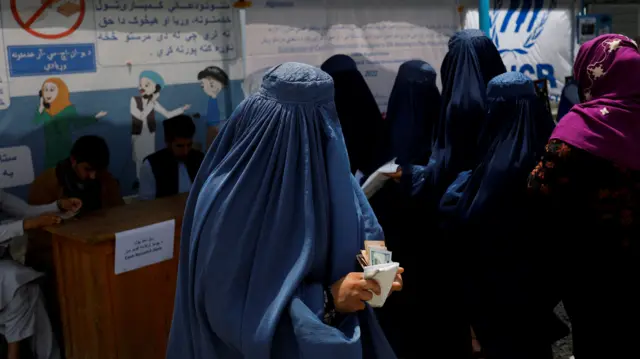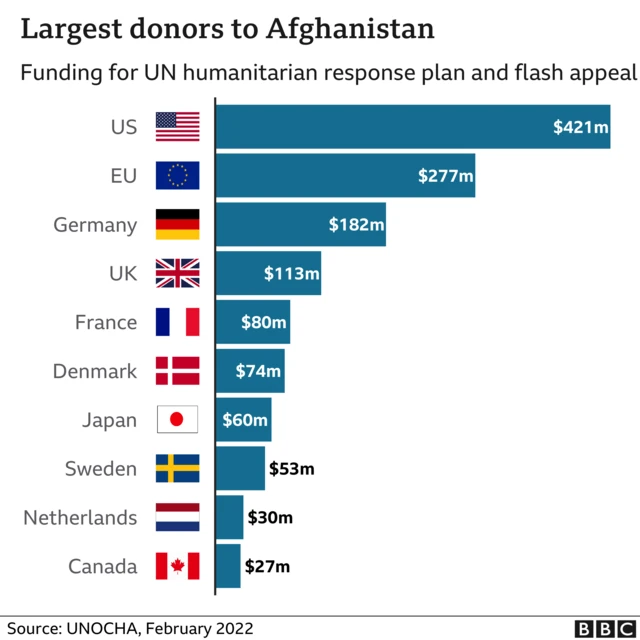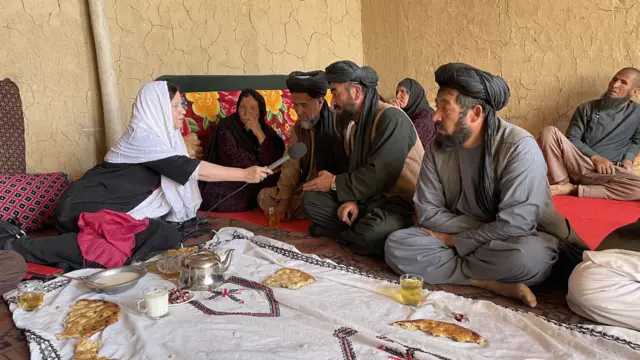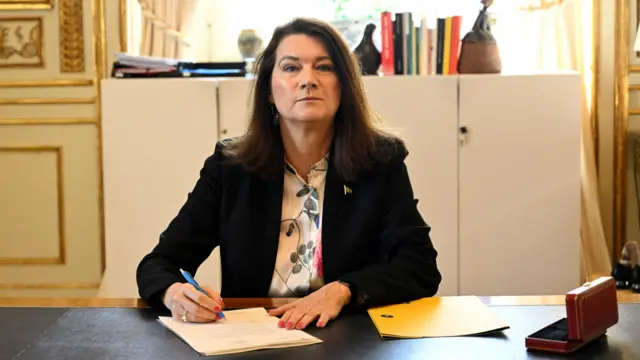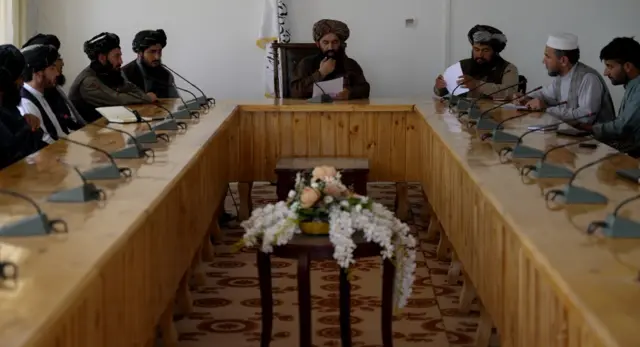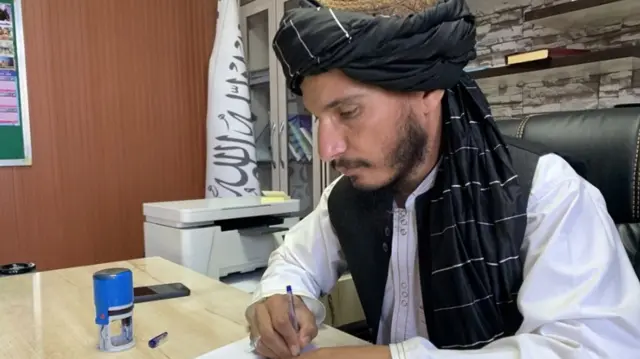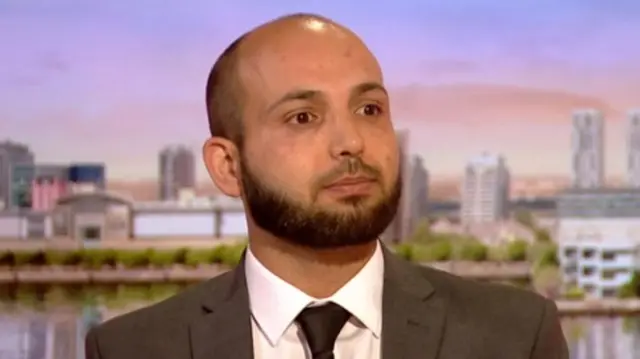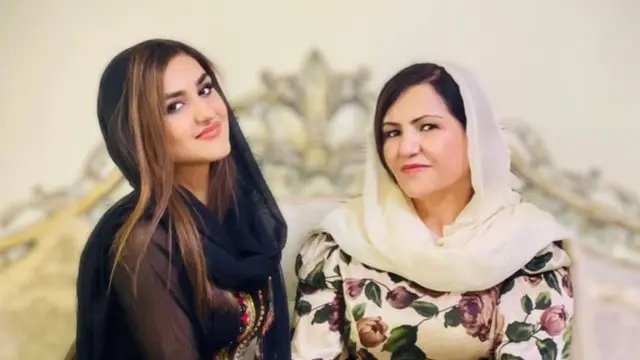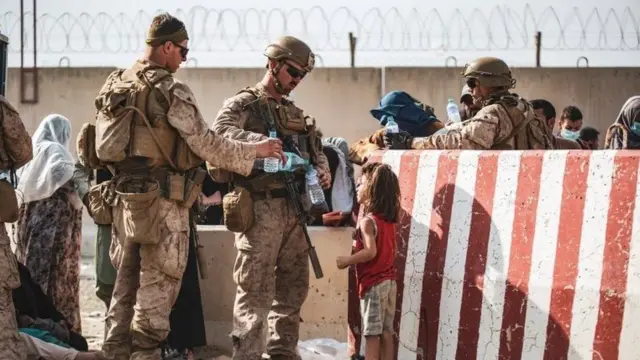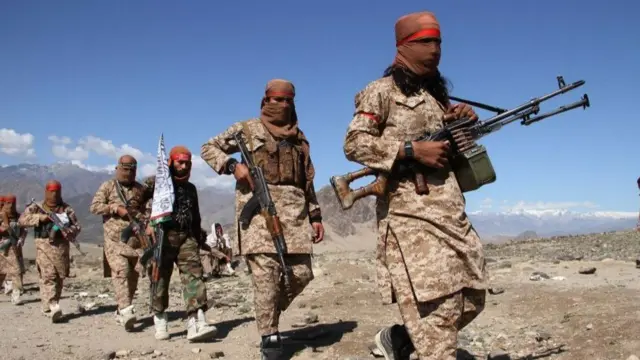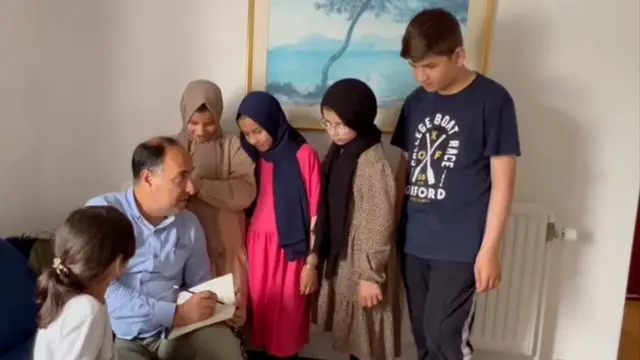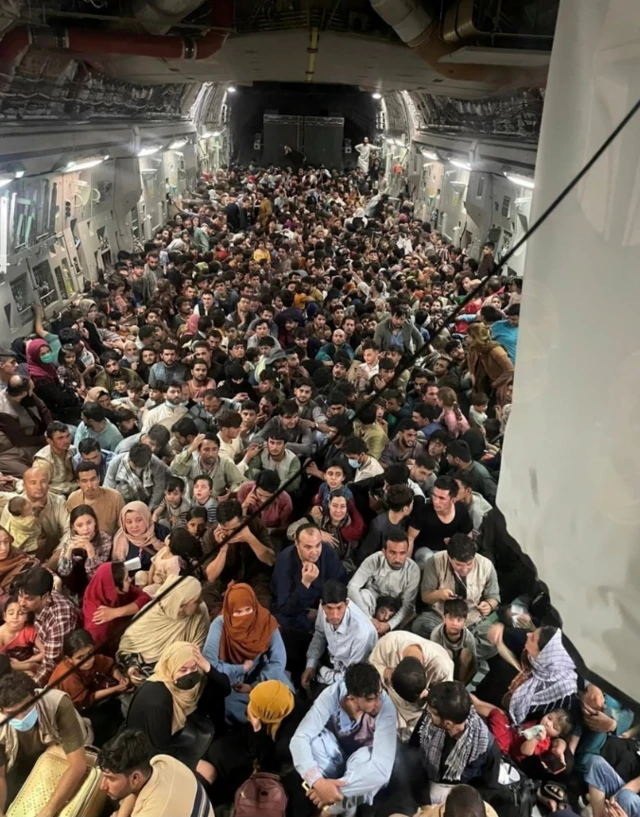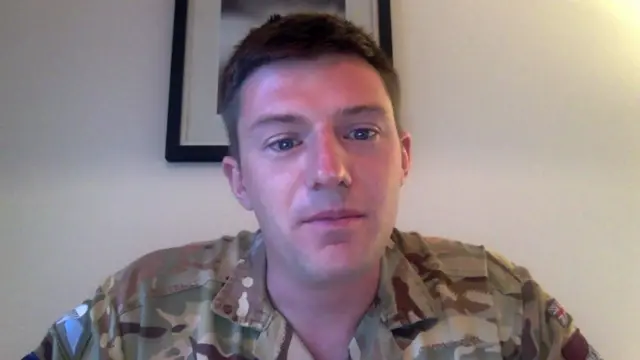Why doesn't the international community stop freezing Afghanistan's bank reserves?published at 13:24 BST 15 August 2022
 Yogita Limaye
Yogita Limaye
Reporting from Kabul
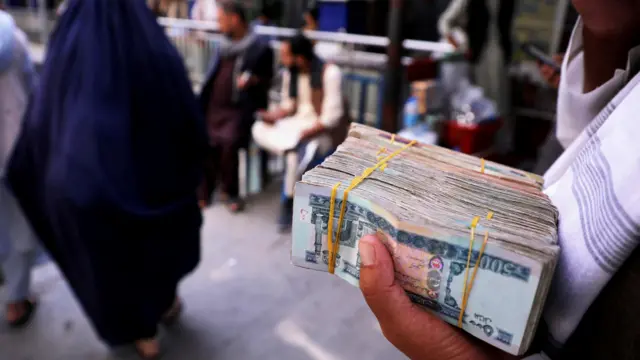 Image source, Reuters
Image source, ReutersAlibek, 27, in Afghanistan, asks: Why other countries aren't stepping in to prevent a humanitarian crisis given Afghanistan has become much safer. He asks if the economy is the only issue?
The international community is caught in a tricky situation. The economy is among the biggest issues in Afghanistan, but certainly not the only one.
The Taliban have not delivered on commitments they made on women’s rights and human rights in public statements during the talks with the US in Doha in 2020.
There is also no guarantee that the country will not once again become a breeding ground for extremist outfits which threaten security in other parts of the world.
Withholding Afghanistan’s central bank reserves gives the international community some leverage to negotiate with the Taliban. But there’s another side.
The money could help kickstart the economy again, and that in turn could save millions from the brink of poverty and hunger.
In short, giving the Taliban money is a dangerous option without guarantees on human rights and how it will be spent.
But not giving it is deepening the already acute humanitarian crisis. There are no good answers to this question.


